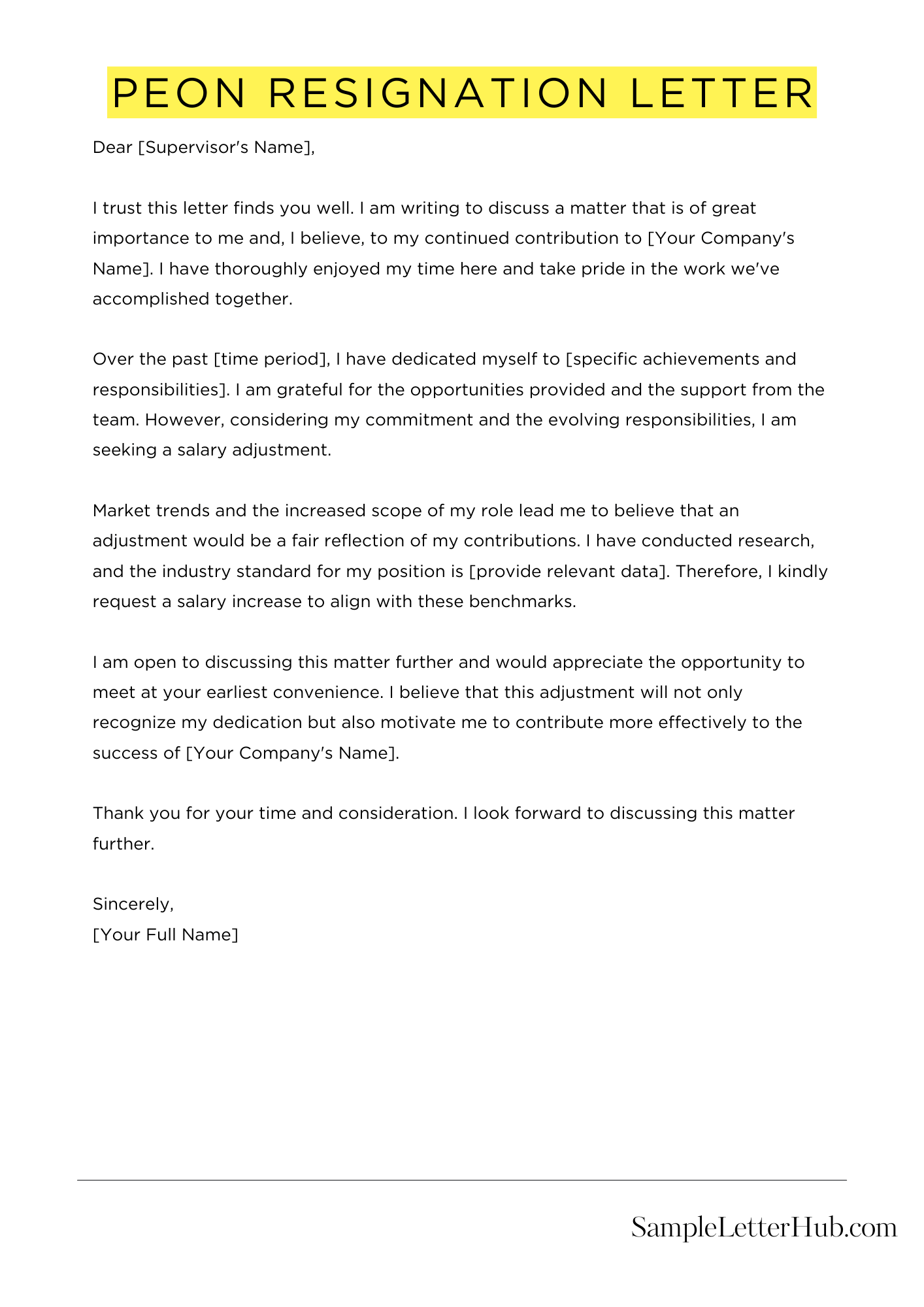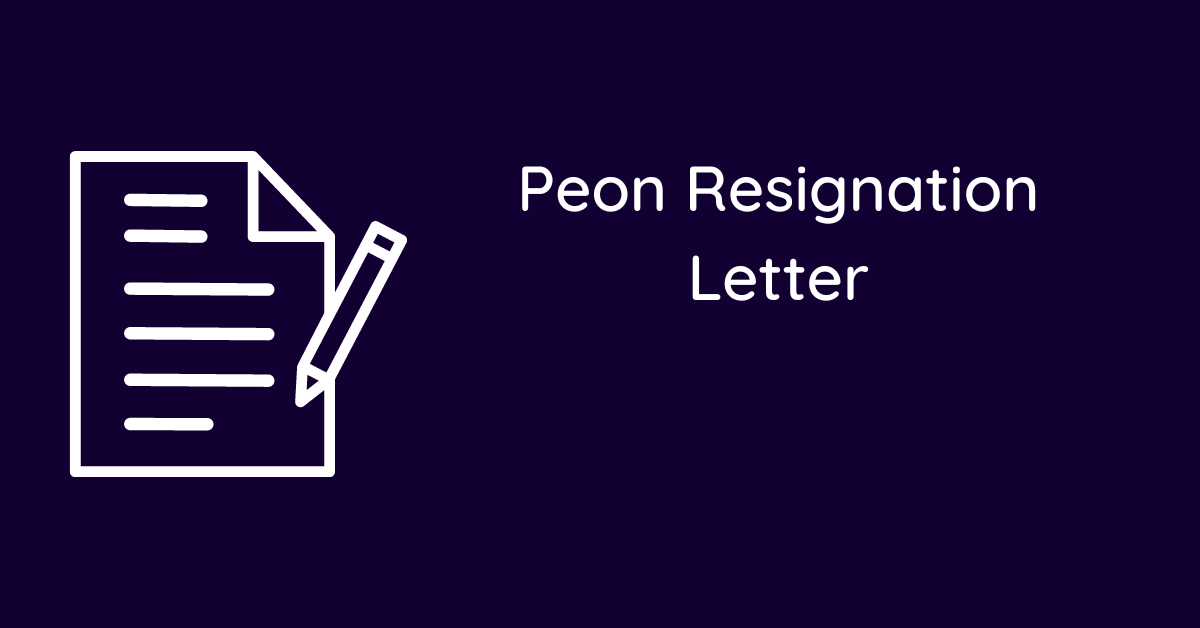If you’re a peon looking to resign from your position, you’ve come to the right place. In this article, we’ll provide you with an example of a peon resignation letter that you can use as a template.
When it comes to leaving a job, it’s important to do so in a professional and polite manner. Your resignation letter should be clear and concise, and it should explain your reasons for leaving. It’s also important to be humble and respectful in your tone.
Below, we’ve provided a template for a peon resignation letter that you can use. Feel free to adapt it to your own needs.
Peon Resignation Letter
Dear [Recipient Name],
Please accept this letter as formal notification that I will be resigning from my position as a Peon at [Company Name], effective [Last Date of Employment].
I have enjoyed my time at [Company Name] and am grateful for the opportunities I have been given. I wish the company all the best in the future.
Thank you for your support and guidance during my tenure.
Sincerely,
[Your Signature]
Short Peon Resignation Letter Sample
Please accept this letter as formal notification that I am resigning from my position as Peon at [Company Name]. My last day of employment will be [Your Last Day]. Thank you for the opportunity to grow and learn during my time here. I wish you and the company continued success. I am happy to assist in the transition process to ensure a smooth handover of my responsibilities.
I wish you all the best with your peon resignation letter.
When it’s time to say farewell, expressing your gratitude and best wishes can make the transition smoother:

How to Write a Peon Resignation Letter
1. Start with a Formal Salutation
Begin your letter with a formal salutation, such as “Dear [Manager’s Name].” This shows respect for your manager and sets a professional tone for your resignation letter.
2. State Your Intention to Resign
Clearly state your intention to resign from your position as a peon. Use a direct and concise statement, such as “I am writing to inform you of my decision to resign from my position as a peon at [Company Name], effective [Your Last Date of Employment].”
3. Express Gratitude
Take this opportunity to express your gratitude for the opportunities and experiences you have gained during your time at the company. You can mention specific projects or accomplishments that you are proud of, or thank your manager for their support and guidance.
4. Offer to Help with the Transition
If possible, offer to assist with the transition during your notice period. This could include training your replacement or helping to complete any outstanding projects. This shows that you are committed to leaving the company on good terms.
5. Close with a Formal Farewell
End your letter with a formal farewell, such as “Sincerely,” or “Respectfully yours.” You can also include your full name and signature below your typed name.
Peon Resignation Letter: Frequently Asked Questions
Resigning from a position as a peon can be a daunting task, but it doesn’t have to be. Here are the six most frequently asked questions and answers to help you navigate the process:
1. What is the proper format for a peon resignation letter?
A peon resignation letter should follow a formal business letter format. It should include your name, address, date, the company name, and the company address. The body of the letter should state your intention to resign, your last date of employment, and a brief expression of gratitude.
2. How much notice should I give?
The amount of notice you should give depends on your employment contract and company policy. It’s generally advisable to give at least two weeks’ notice, but it’s always best to check with your employer to be sure.
3. What should I include in my resignation letter?
Your resignation letter should be brief and to the point. It should include the following information:
* Your name
* Your position
* Your last date of employment
* A brief expression of gratitude
4. Do I need to provide a reason for resigning?
You are not required to provide a reason for resigning, but it is common to do so. If you choose to provide a reason, be brief and professional.
5. What should I do if I have any outstanding tasks?
If you have any outstanding tasks, it’s important to make arrangements to complete them before you leave. You can offer to train your replacement or provide documentation on your work.
6. What should I do if I have any questions?
If you have any questions about resigning, it’s best to speak to your supervisor or human resources department. They can provide you with guidance and support.
Before making the decision to resign from your job, it’s essential to consider the legal aspects:
Understanding your emotions after quitting your job is important. Explore why you might be feeling sad:
Related
- Resignation letter sample
- Forced resignation letter
- Resignation letter due to going abroad
- Resignation letter due to marriage
- Resignation letter due to other opportunity
- Resignation letter due to mistake

